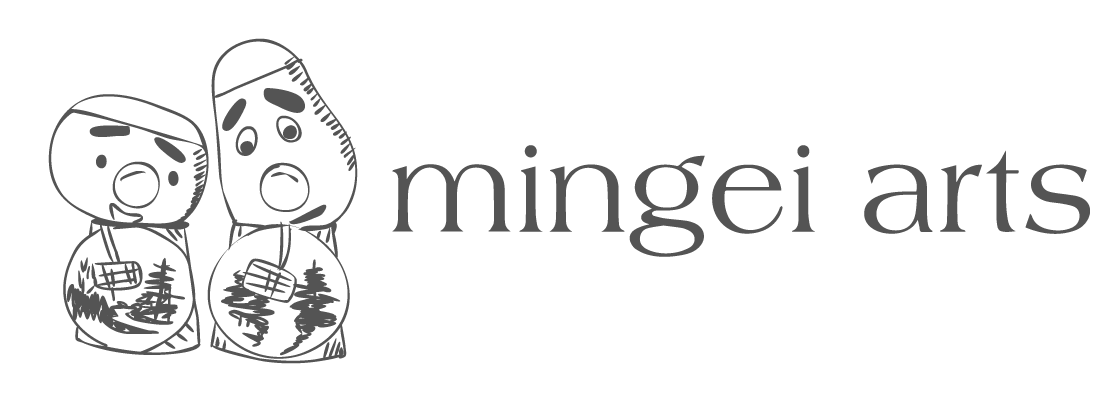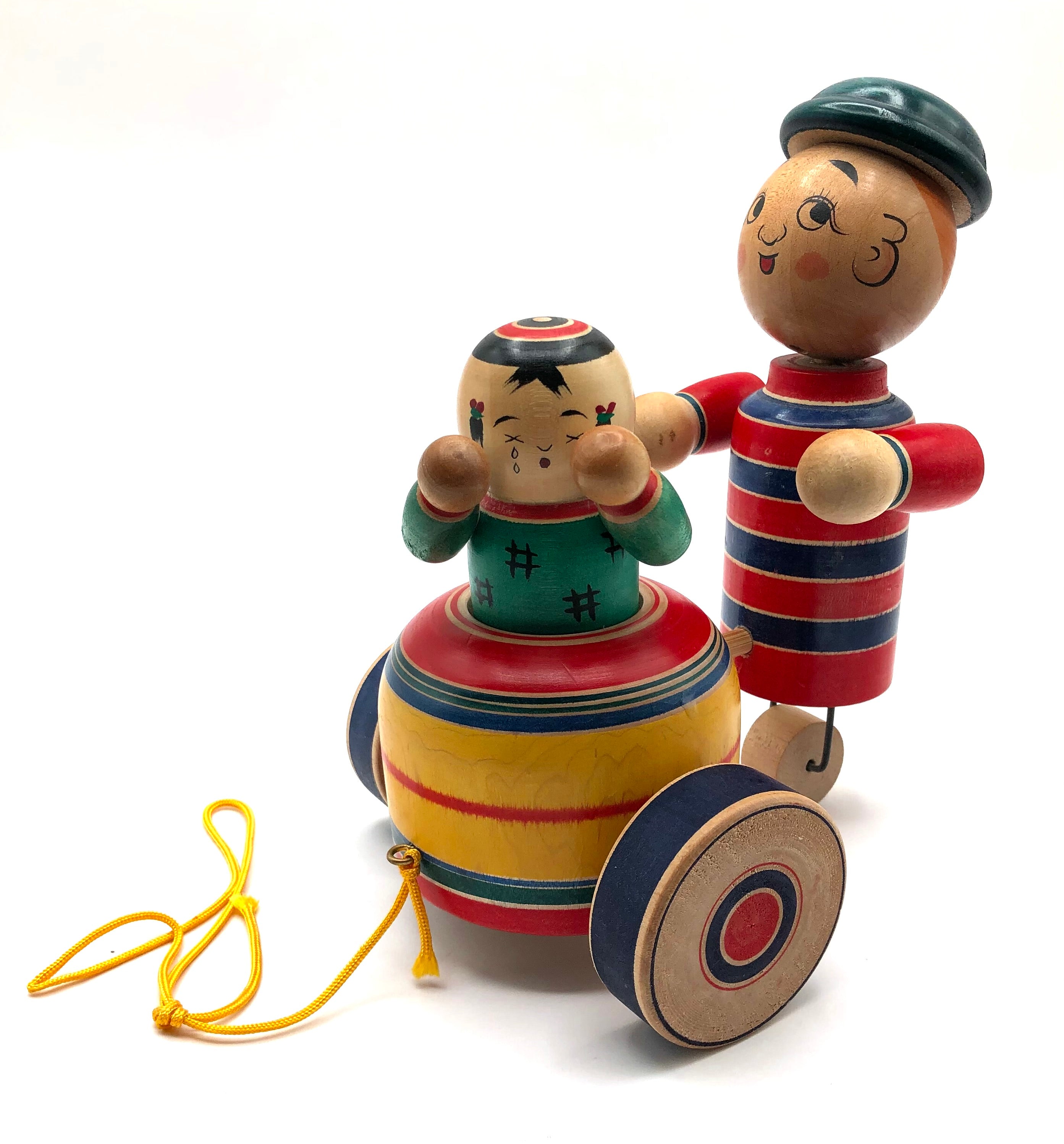
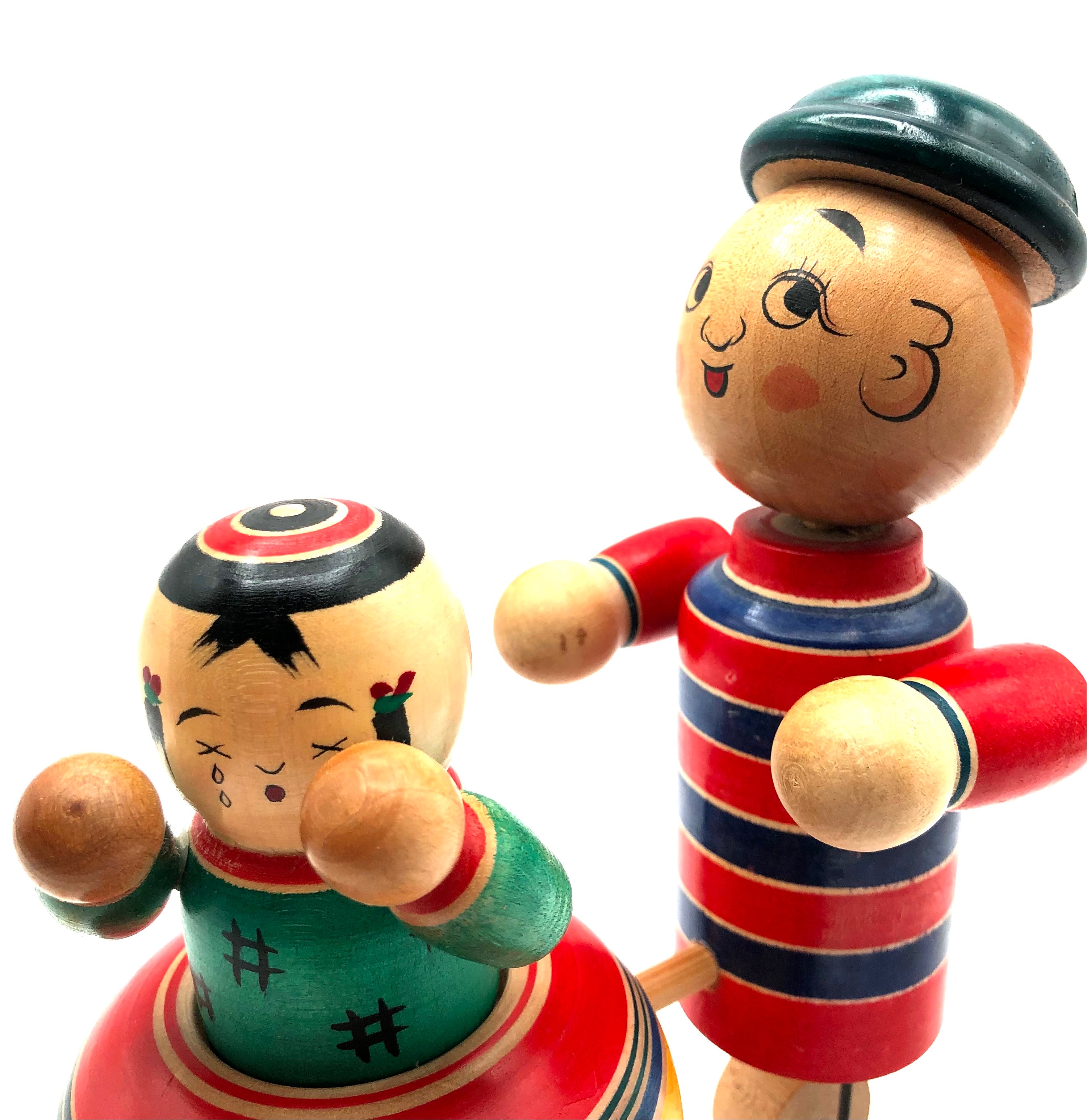
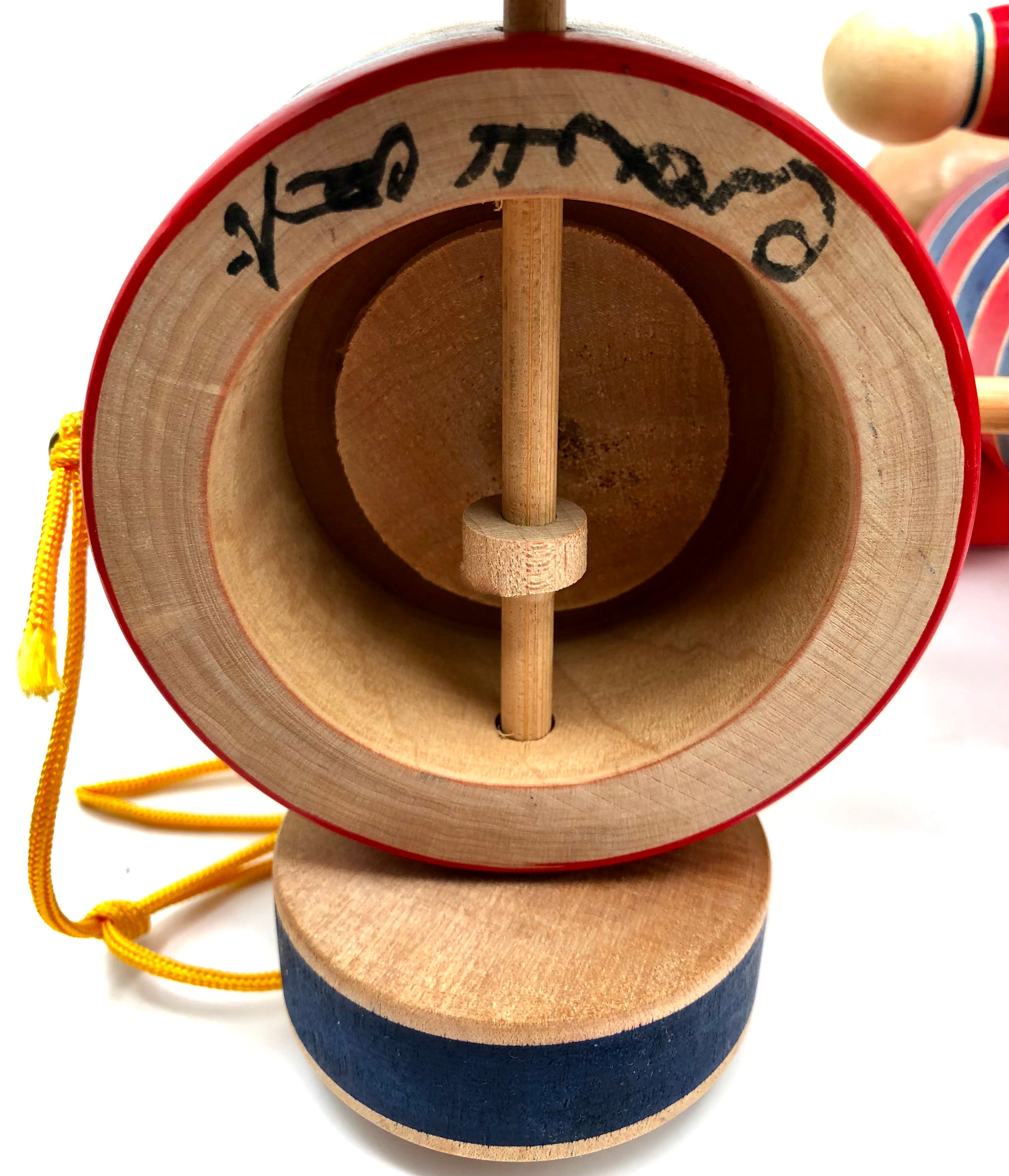
RARE Vintage Japanese Yajirou Wheeled Pull Toy ‘Tending Brother’ by Tsuta, Mamoru
Dimensions: 7-3/4”h x5-0”w x 6-0l
Offered is an unusual, old, and rare Kijigangu by the elder Brother within the Tsuta Family of toy makers. Mamoru’s father created the first Kokeshi toy of this type which was carried on throughout the family's making business. Japanese toy makers changed the stagnant fixed toy with their amazing interactive and mechanical toys representing three-dimensional images of all aspects of everyday life.
Seen is a pull toy that depicts an older boy pushing his younger crying brother in a cart. Lathe-turned wooden toys produced by the Tsuta family was inspired by Kokeshi craftsmen throughout Northern Japan. The most fascinating aspect is the head and face of the older boy with very expressive with wide, engaging eyes, funny eyelashes, large ears, a expressive smile, and red cheeks and mouth. The specific face type was a signature of Mamoru-san. Additionally, his arms move freely and are attached with dowels and the entire figure is attached to a wheel giving toy the ability to be freely pulled. His body is colorful utilizing red and deep blue horizontal strips to give it life. The second part of the toy is the wheeled cart in which his younger brother sits and uniquely the entire figure moves back and forth as the wheels turn. The boy has fixed arms partially covering his crying eyes. His face too is very expressive with the characteristic Mamoru face and details. The boys clothing is painted in green with a small checkered pattern. The round push car is also decorated with horizontal red, blue and yellow strips as well as the wheels of the push car. The piece was signed by the artist and was done so because these pieces were sold as a souvenirs to bring home to their children. During this time frame, craftsmen began to sign both Kokeshi dolls and Toys because many of them began to be exported.
For further reading about Yajirou-key family go to: https://mingeiarts.com/collections/yajirou-kei-family and https://mingeiarts.com/collections/artisan-interactive-toymaker-tsuta-family-sakuzuo-mamoru-fumio-1892-1944
NOTE: The pigments used in this doll's creation are not colorfast, so colors may fade if brought into contact with water. The entire figure should be handled carefully at all times as it has been by the previous owner who treasured the works of the Tsuta family.
Condition: Pristine meaning that the piece retains its original craft/workmanship and functions as intended, showing a wonderful-developed patina and is void of damage, cracks, breakage, or repairs and meets all the standards of the collectible Vintage Traditional Yajirou Kokeshi Toys.
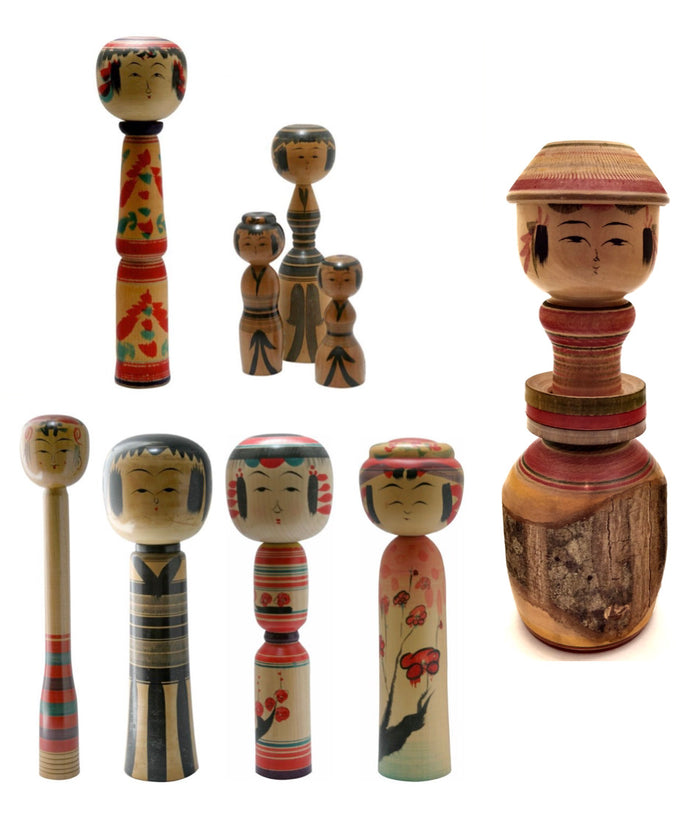
Japanese Traditional Kokeshi
Yajirou-Kei (Family)
Prefecture: Miyagi
Origin:
This strain of Kokeshi is said to have been an offshoot of the Tougatta strain and is far less refined. That eventually developed into a unique style that remains today. The creators of these dolls hail from the small farming village of Yajirou-machi near Kamasaki Onsen, in Miyagi Prefecture, once a farming village between two tall mountains. The Kiji-shi (woodworkers) divided their time between farming and woodcraft. Those who made kokeshi in their spare time sent their wives to the nearby Kamasaki Onsen to sell their work to tourist shops and onsens.
Collector's note – characteristics/painting style:
The majority of this style has distinct waists, or (kubire), where the body tapers inward, with a wider, flared base similar to a kimono, thus making them very stable. The upper body usually has a hand-painted collar with horizontal stripes encircling the body, as in the Rokoru-moyo style, and vertical stripes running below the waist to the base of the doll. However, Yajirou dolls can also be found with a series of chrysanthemum petals running down the front of the body, or a branch of plum blossoms, as the only decoration. Yajirou dolls are some of the most brightly painted of the traditional family group. Utilizing a veritable rainbow of colours, from the usual red and black to green, yellow, and even blue and purple, they are available in probably the widest range of shapes. Some also have a painted beret-like feature or a bun on their heads, similarly painted with a red center spot. Less common are Yajirou who have conical hats known as Suge-Gasa. Typically seen is one lid or double eyelids and a cat or pick-shaped nose. Yajirou kokeshi have been made from cherry wood, camellia, and maple, but the preferred wood is white dogwood, (Mizuki). And finally, both Yajirou and Tougutta dolls are sometimes created with loose rings circling the waists. Carved from the same wood as the body, which is a very meticulous method! This treatment is referred to as 'Yamiyo' style kokeshi.

Leading, Craftsmen:
Niiyama, Keimi, 1925, (Shirabu, Yamagata) - Master Niiyama, Keimi. No additional published information
Niiyama, Fukutaro, 1898-1965 - No additional published information
Niiyama Fukuo, 1922, (Yajiro Shironishi, Miyagi) - Master: Niiyama, Fukutaro. No additional published information
Niiyama, Hisaharu, 1942-2008 - No additional published information
Niiyama, Sanai (Master) - No additional published information
Oizumi, Kiyoni - No additional published information
Saito Masao, 1932, (Shiroishi, Miyagi) - Master: Sato, Tsugio. No additional published information
Sato Tatsuo, 1928-2009, (Yajiro Shiroishi , Miyagi) - Master: Sato, Imasaburo. No additional published information
Sato Yoshiaki, 1936, (Shiroishi Miyagi) - Master: Sato, Tatsuo. No additional published information
Sato, Koichi, 1936, (Shiroishi, Miyagi) - Master:Hamatsu, Heisaburo. No additional published information
Explore & Learn More about Yajirou-Kei (Family)